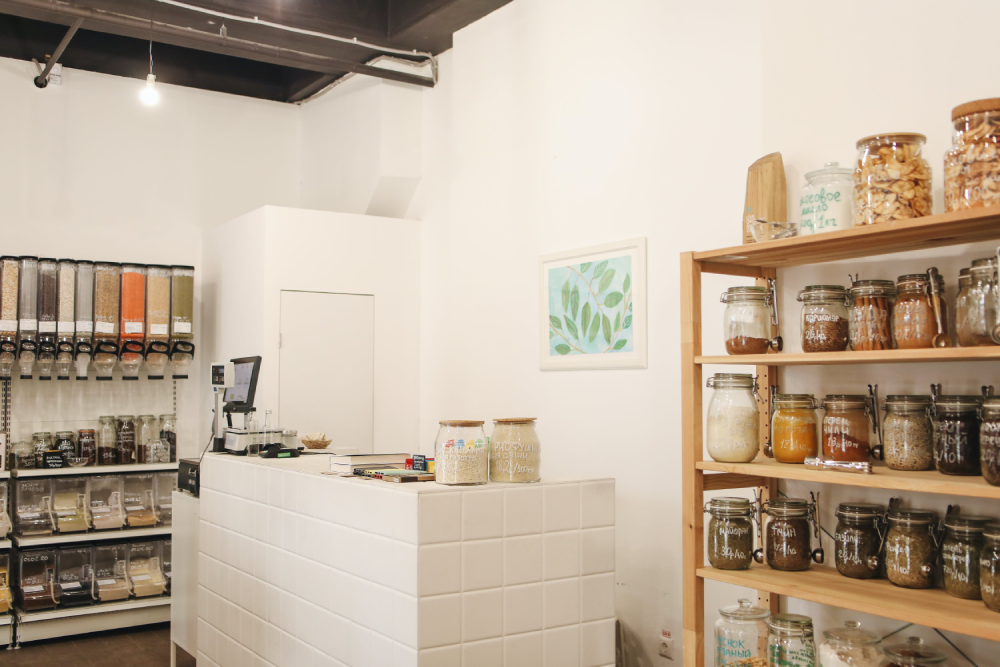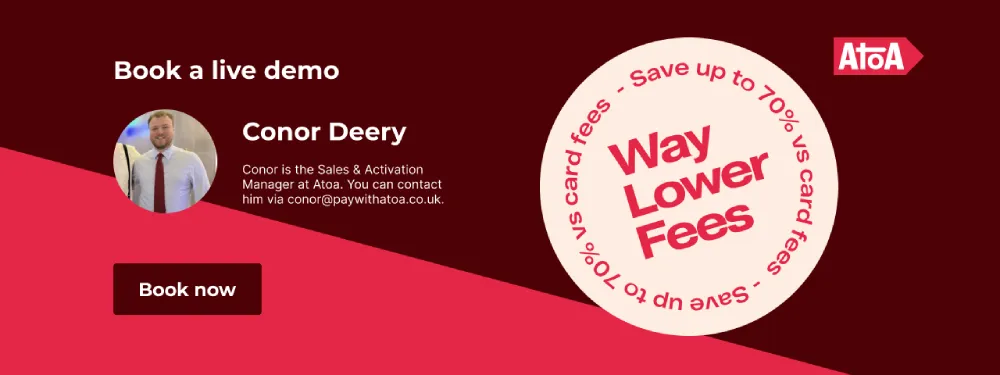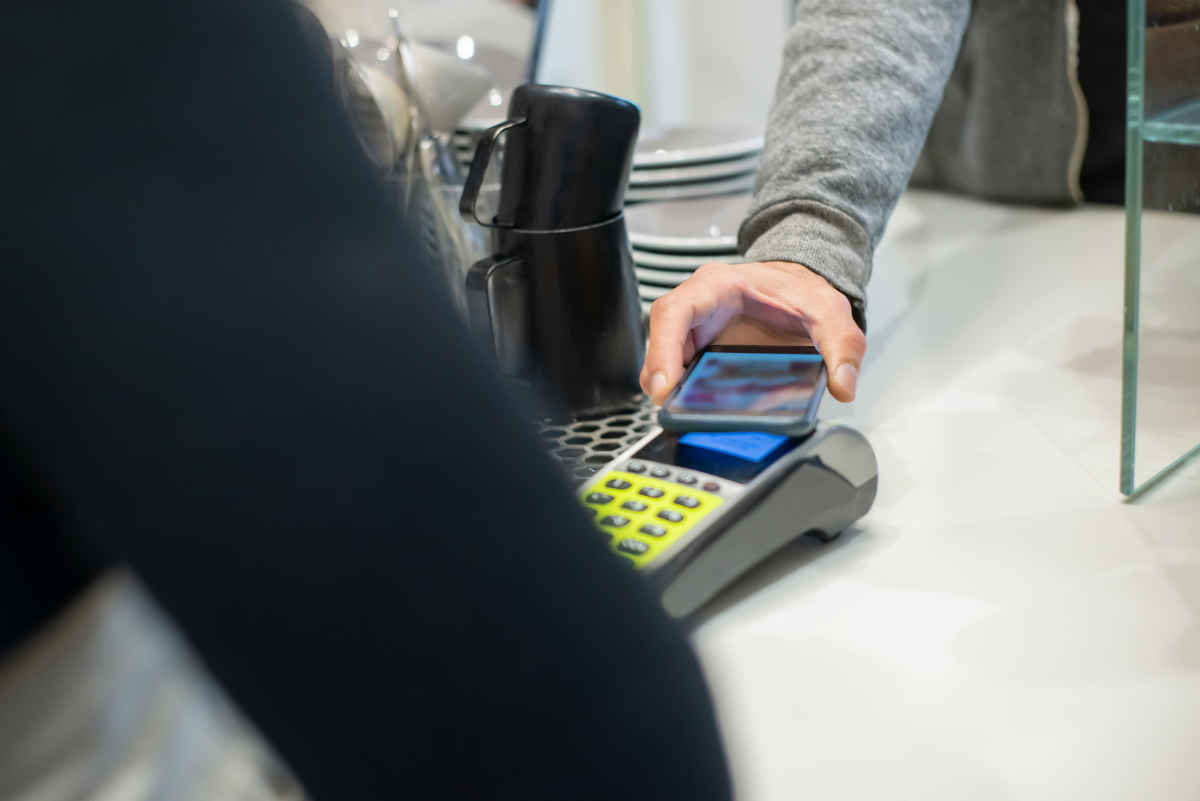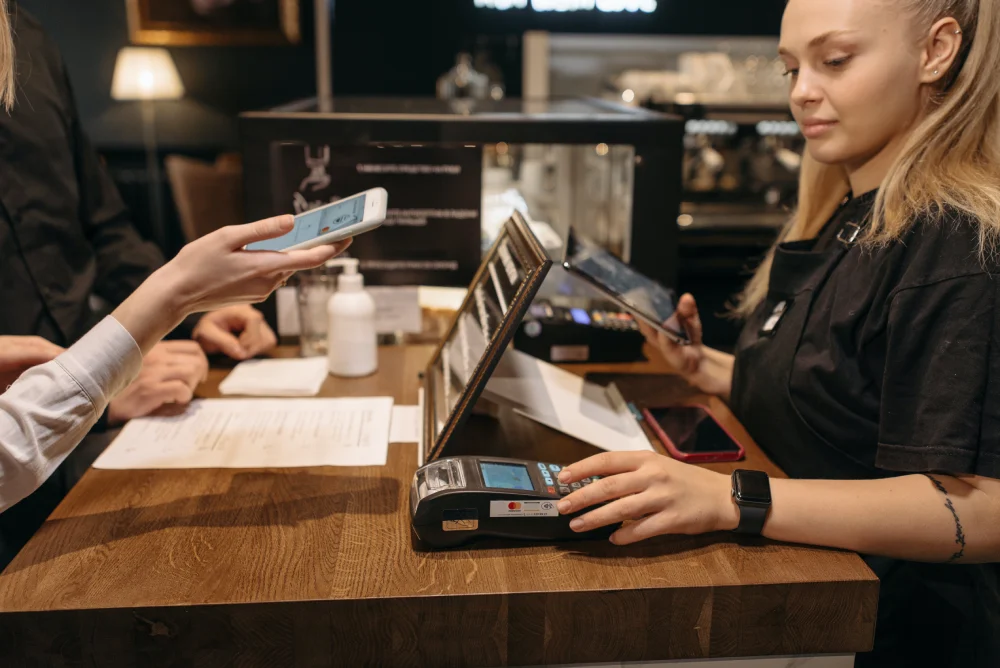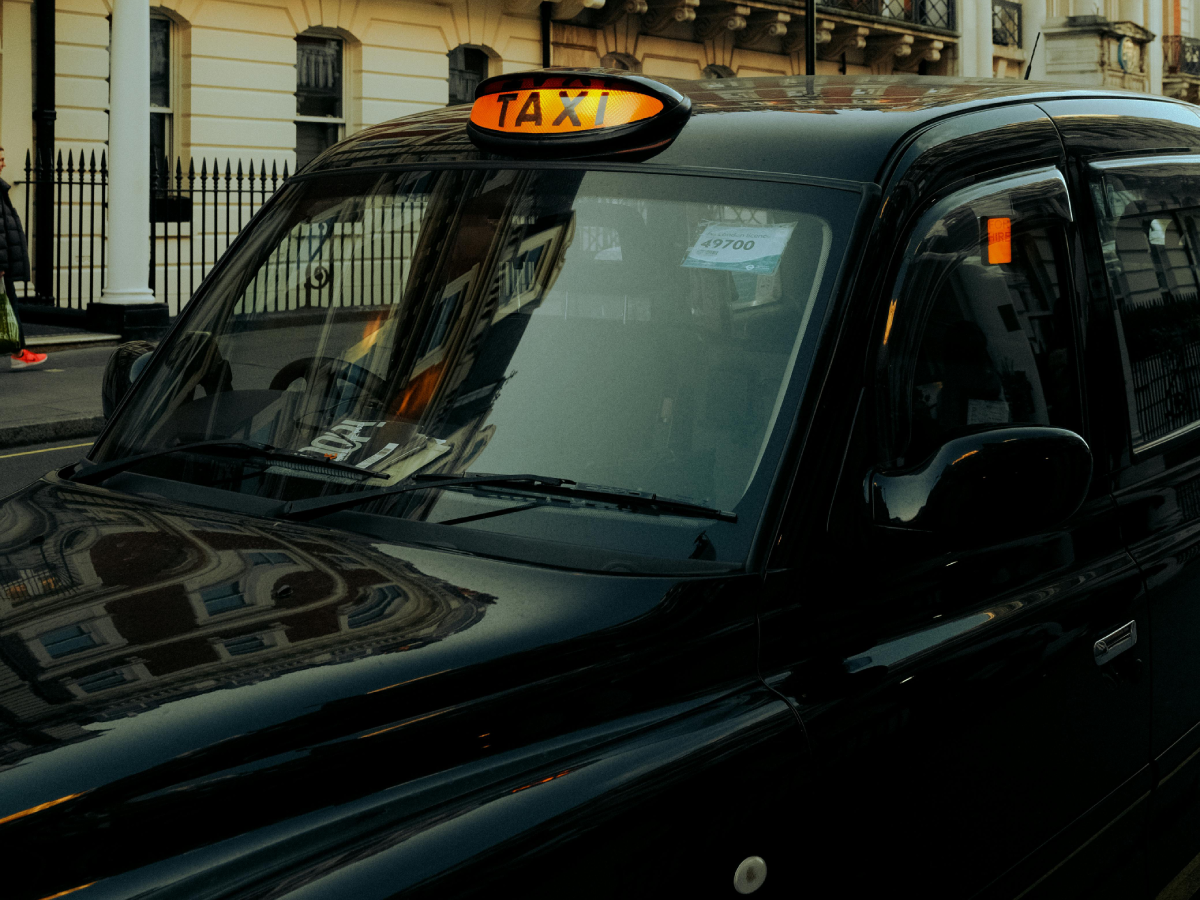Ready to get started?
Easily integrate next-generation payments and financial data into any app. Build powerful products your customers love.
Forget cash; debit cards reign supreme in the UK. 47% of all POS transactions were made using plastic in 2022. That’s nearly half of all in-store payments, dwarfing the 10% made with banknotes and coins. Furthermore, PWC found the decline of cash will continue, with UK volumes expected to be a mere 7% in 2032.
So, the burning question is, is your retail payment solution keeping up with the shift to digital?
In this article, I will explore the latest UK retail payment solutions to make sure you offer a seamless and innovative checkout experience for your customers.
- Find out why retail payment processing matters
- Compare retail payment gateways available in the UK
- Figure out how to choose the best option for your business
What are retail payment solutions?
Retail payment solutions are the systems that facilitate, manage, and secure transactions. They involve retail payment options that let customers buy goods and services. These solutions have come on leaps and bounds in recent years, driven by factors such as e-commerce and its demand for faster, more convenient, and secure payment methods.
Imagine you’re buying some new trainers in-store. A retail payment solution is the entire system that lets you pay for it; not just the cash, card or mobile wallet itself. Think of it in 3 simple steps.
The “how you pay” step: Your payment methods include cash, cards, mobile wallets, and even buy-now-pay-later options.
The “make it happen” step, also known as payment processing, is the behind-the-scenes action that checks if your card has enough money, moves the money from your account to the business, and keeps everything secure.
The “where you pay” step or the point-of-sale (POS). Think traditional cash registers, self-checkout kiosks, or even your phone.
A retail payment solution is basically everything that works together to make sure your shopping experience is fast, safe, and easy, no matter how you choose to pay.
Rising trends in retail payments
Retail is experiencing a dynamic transformation, driven by innovative payment solutions that prioritise speed, convenience, and security. Whether you’re a seasoned brick-and-mortar store owner or an e-commerce mastermind, staying in tune with these trends means a better customer experience and a boosted bottom line.
This section explores the benefits and challenges of each method, from point-of-sale (POS) systems to mobile wallets and contactless payments. By navigating cutting-edge solutions, you can future-proof your business for success. So buckle up and join us!
What does a retail payment solution need?
Every store, whether it’s physical or online, needs a way to accept payments. So, first things first, a good bit of kit.
Point-of-sale (POS) systems process transactions at a physical location, such as a store or restaurant. They usually accept cash, credit or debit cards, and various mobile payments.
Online payment gateways process transactions on the Internet. They allow customers to pay for goods and services online using a credit or debit card or other payment methods.
Self-checkout kiosks process transactions without a cashier. Customers can scan their items and pay using a credit or debit card or mobile payment, maybe triggered by a barcode or QR code.
Then next comes the payment methods your solution needs to collect funds…
At its most basic, a retail payment solution can accept traditional payment methods like cash and cards.
Contactless payments allow customers to pay for goods and services by simply tapping their card or mobile device on a payment terminal. Due to their speed and convenience, contactless payments are reshaping how we pay in retail and are popular with consumers.
Pay with your phone or tablet using mobile payment solutions. Just download a mobile wallet app, securely store your card info, and pay on the go for anything from groceries to clothing. By 2026, digital wallets are expected to make up 21% of all UK transactions. So, hop on the trend and simplify your shopping experience.
Buy-now-pay-later options allow customers to purchase goods and services and pay for them later or in instalments. They offer flexibility and convenience, which boosts their use.
Key things to look for in a retail solution
Here is an easy checklist with the essential features to look for in a retail payment solution.
- Does it accept multiple payment methods like cards, contactless, and mobile wallets?
- Does it allow account-to-account payments? A recent study by Nuapay found that more than 54% of consumers would use A2A payments if the option were available.
- Will it integrate with any existing POS or e-commerce platform that you have?
- Is fast and secure transaction processing offered?
- Can you use it for real-time reporting and analytics?
- Does it cover extra features you need, like inventory or invoices?
- Make sure it considers mobile payment options for customer convenience.
When you select a payment system, check its security measures and PCI compliance. PCI compliance is a set of security standards that businesses must follow when processing payments. Adhering to these standards helps keep customer data secure and protected from fraud. You can find more information on the UK government website.
Retail payment systems for 2024, compared
| Feature | Adyen | Atoa | Klarna | PayPal | Stripe | Square | Worldpay |
|---|---|---|---|---|---|---|---|
| Overview | Global omnichannel payments | Instant QR code payments with low fees | Leading buy now, pay later (BNPL) service | Trusted brand for fast global transactions | Developer-friendly API with integrations | Combined POS system and payments | Established and versatile |
| Benefits | Fraud prevention and advanced reporting | Cost-effective and fast | Flexible payment instalments | Wide range of features | Simple setup with mobile payments | Scalable and customisable | High security and reliable |
| Pricing | Per-transaction and volume-based | Pay-as-you-go | Payment fees and merchant fees | Fixed and variable fees | Tiered and volume-based | Transaction fees and monthly plan | |
| Ease of use | It can be complex for beginners | Very simple and intuitive | Straightforward but limited features | User-friendly for most businesses | Tech-savvy users only | Easy setup | Requires technical skills |
| Ideal for | Large retailers, omnichannel (travel, luxury) | Contactless or mobile (salons, food and drink) | High-value (fashion, furniture, electronics) | Small businesses with fast checkout (freelancers, local shops) | Tech, subscriptions, global (SaaS, courses) | Brick-and-mortar, POS (cafes, salons, retailers) | Established, high-risk (e-commerce, gambling, travel) |
| Pros | Extensive features, omnichannel support | Low fees, quick and convenient | BNPL boost sales, can attract new customers | Trusted brand, fast transactions, mobile wallets | Powerful API, global reach, secure | Reliable with high volume capacity | |
| Cons | High setup and transaction fees | Not ideal for very complex businesses | Potential for customer debt & chargebacks | Limited customisation & integrations | Complex setup with coding knowledge needed | Transaction fees can add up | Expensive for smaller businesses |
Other honourable mentions
Shopify Payments: Integrated for Shopify stores, competitive fees, easy setup.
Opayo: Secure and reliable, good for high-risk businesses with competitive fees.
Zettle by PayPal: An affordable POS system with mobile payments, ideal for new businesses.
Further considerations when choosing a retail payment system
- Weigh up your business size and also its type.
- Use a solution that can handle both your transaction volumes and frequency.
- Identify integration needs for any existing software or tech.
- Thoroughly check that pricing plans match your budget.
- Check the provider is FCA-approved and compliant with payment regulations.
💡 Remember: it’s important to choose a retail payment solution with fees and terms that suit your business needs.
FAQs
How do I start a retail business in the UK?
Good question! Read this handy guide to starting a retail business in 2024. The retail industry holds many opportunities for entrepreneurs, so if you’ve got a USP, it’s worth the jump.
Which payment methods should I add to a retail payment solution?
Customers might still use cash for small purchases, but debit cards(48%) and credit cards (9%) are very popular. 83% of the UK population now use contactless, with no age group below 75% usage. Plus, mobile wallets are rising fast, and Buy Now Pay Later options are gaining traction with younger customers.
Do I need to offer all these payment methods?
No, the best payment mix for your business depends on who you serve, what you sell, and how you sell it. Consider what your customers prefer and what suits your sales model. Offering variety, however, can attract more customers and boost sales.
Are contactless and QR code payments safe?
Yes, they use secure technology like biometric authentication and usually have transaction limits to reduce risk. Lots of customers prefer them due to speed and convenience.
How Atoa can help
We can deliver A2A payments to your business, whatever its shape or size! Atoa allows customers to make in-store, online and remote payments taken directly from your customer’s UK bank app.
Want to find out more? It’s time to give Conor a call…
